On Tuesday, October 13, 2015, The Embassy of Japan in collaboration with the Japan Foundation hosted the Japanese Drums and Dance Night at the Crossroads Hotel in Lilongwe. This year marked the fourth time in which Japanese taiko drummers visited Malawi to showcase taiko performance. This year, three drummers from Eitetsu Fu-un no kai, a group of drummers who resonate with the music of the internationally acclaimed taiko soloist and pioneer Eitetsu Hayashi, came to Malawi: Mikita Hase, Makoto Tashiro, and Tasuku Tsuji. The Eitetsu Fu-un no kai gave a dynamic performance combining traditional taiko drums with dance movements as well as playing in ensembles. Approximately 800 people attended the concert and listened to the wonderful and energetic performance. At the end of the concert, the taiko drummers collaborated with the children dancers from Music Crossroads and JICA volunteers to perform Soran Bushi, the Japanese fishermen's dance, ending the concert with great success.
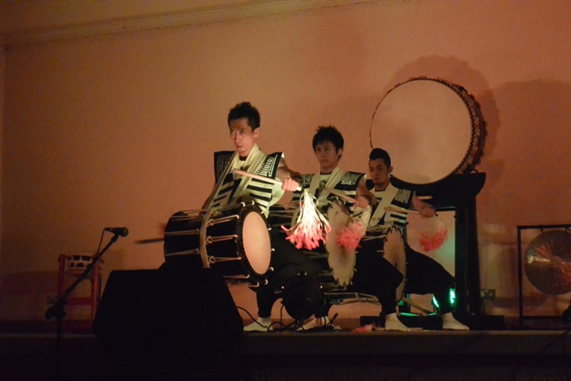
Performance on the okedo daiko (tub drums) while dancing
by the Eitetsu Fu-un no kai members (from left: Mikita Hase, Makoto Tashiro, and Tasuku Tsuji)
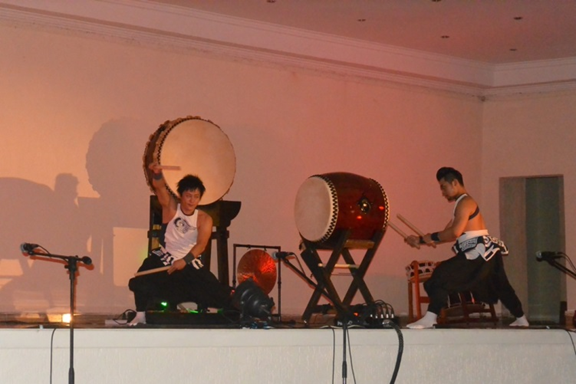
Tashiro and Tsuji's performance drumming on both sides of the middle sized taiko
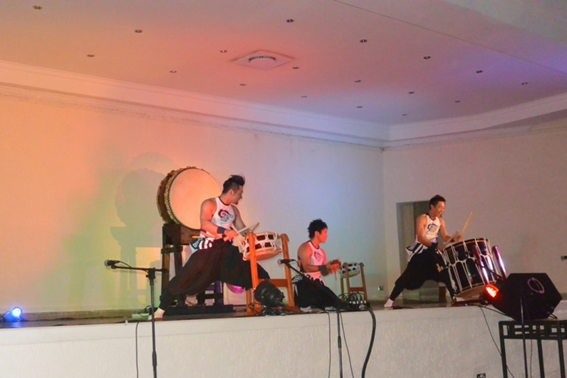
From "Sen No Kaikyo" (A Thousand Sounds of the Sea), drumming with the festive shuffle beat
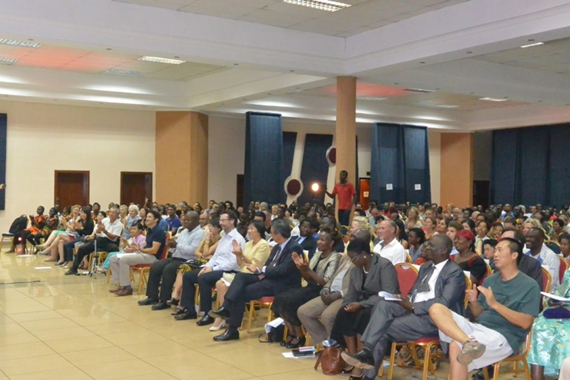
The audience clapping along with the shuffle beat
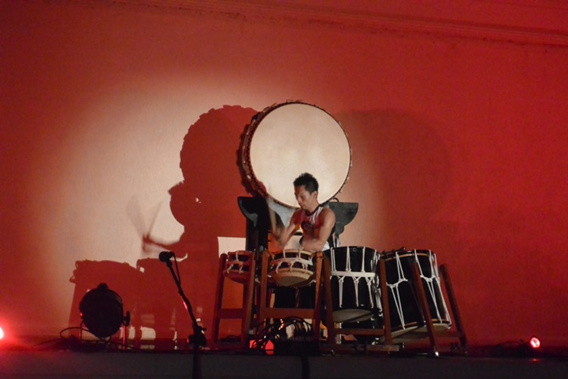
Taiko solo by Hase in "Tenshin Hokuto" (The Big Dipper in the Universe)
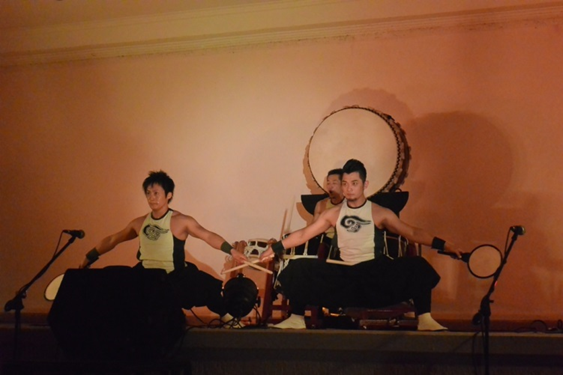
Tashiro and Tsuji performing with uchiwa daiko (round fan drums)
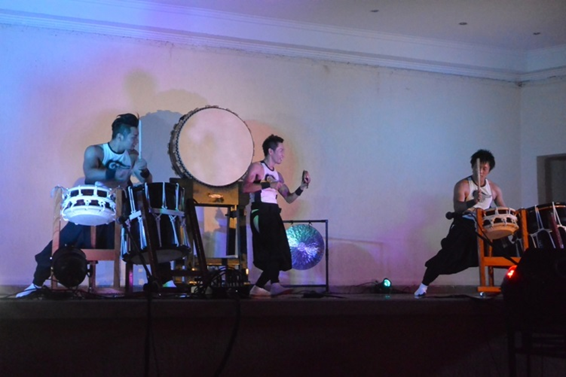
Tsuji and Tashiro take turns improvising freely in "Yunami" (Playing Waves) composed by Hase
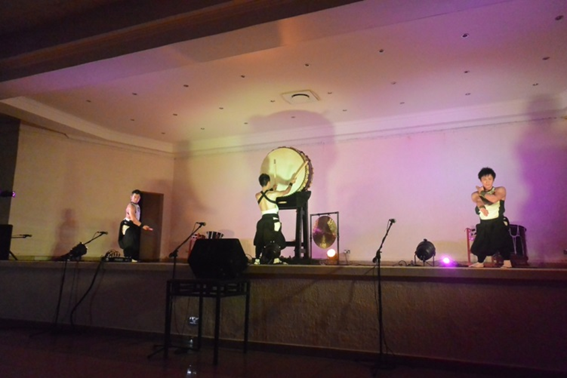
Taiko performed with karate and sword dance in "Toshu Senbu" (Fan Dance with Hands)
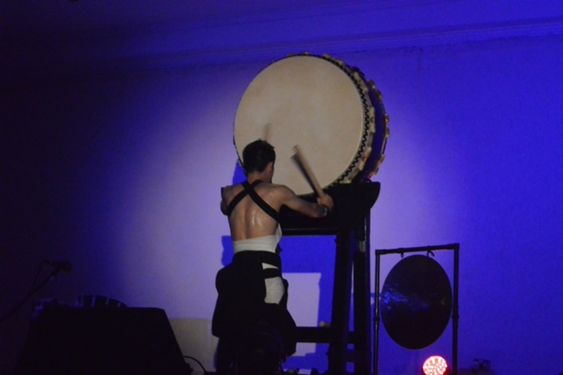
Bass taiko drum solo by Hase, in "Seitai Uchi," the style of drum solo performance
where the perfomer faces the big taiko drum resembling the full moon.
It was invented and perfected by Eitetsu Hayashi.
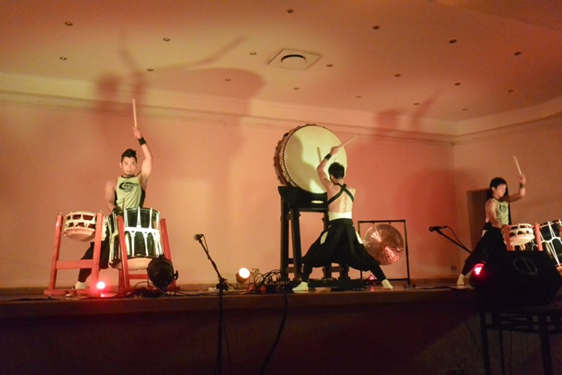
Finale of the night, "Utage" (Festival)
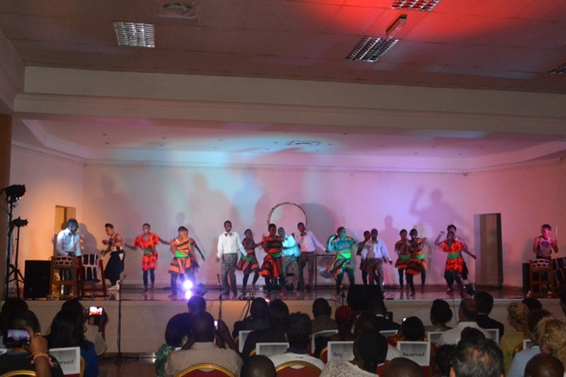
Collaboration with the local music school, Music Crossroads.
The children from Music Crossroads danced to the popukar Malawian pop music,
accompanied by Eitetsu Fu-un no kai members
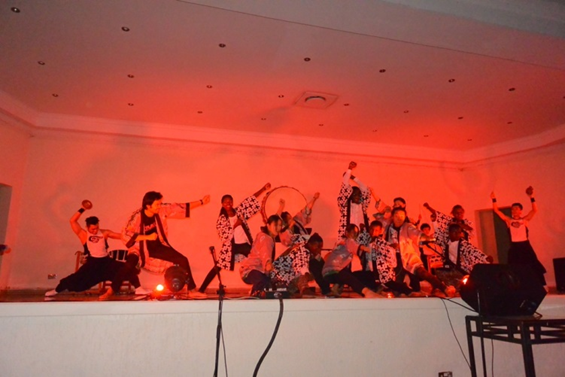
Performance of Soran Bushi (Japanese Fishermen's Dance),
in which Eitetsu Fu-un no kai drummers collaborated with children from Music Crossroads and JICA volunteers
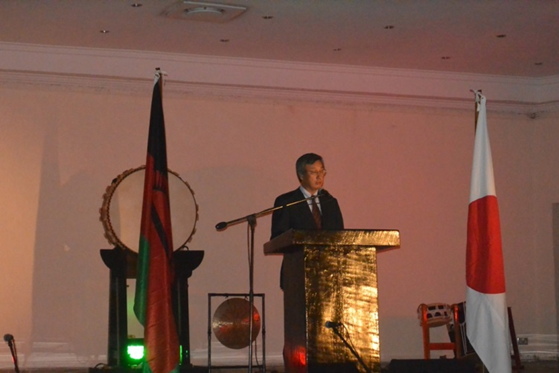
Speech by Ambassador Nishioka before the concert
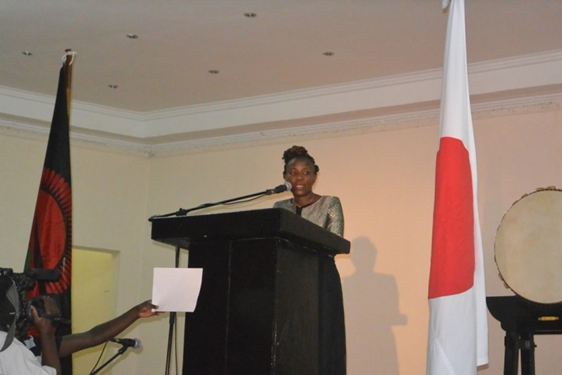
Speech by the Guest of Honour, The Honourable Grace Obama Chiumia, Minister of Sports and Culture
[About the Artist]
Eitetsu Fu-un no kai
Eitetsu Fu-un no kai is a unit made up of ten top young taiko drummers who resonate with the music of the internationally acclaimed taiko soloist and pioneer Eitetsu Hayashi. The unit was founded in 1995 and performs in Hayashi’s original compositions in addition to helping out with new ensembles. The phrase “Fu-un no kai” refers to a favorable opportunity for a highly aspiring figure to achieve his goals and was selected as the name of the unit, as it reflects the drummers’ spirit. The group enjoys great response in Japan and abroad. Since 2005 the group embarked on full-fledged activities as an independent unit.
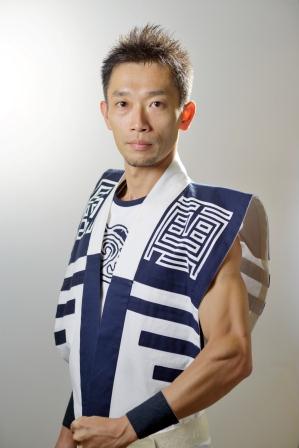 |
Mikita Hase
Mikita Hase has a taiko unit, YO-SORO, which was formed in 2000 and has performed in many concerts both in Japan and abroad. He also joined the Eitetsu Hayashi Fu-un no kai in 2000. As an independent artist, he has also held solo performances and collaborated with various artists creating new forms of the performing arts. In 2015, Hase made his debut as the soloist for Hitenyu, a concerto for taiko composed by Isao Matsushita, performing with the orchestra conducted by Tomomi Nishimoto in South America.
|
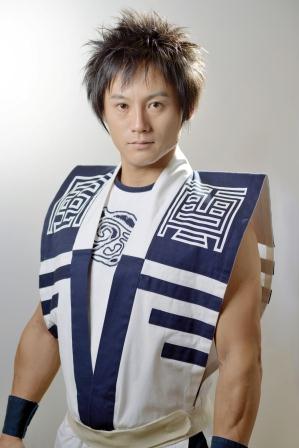 |
Makoto Tashiro
Makoto Tashiro joined Eitetsu Fu-un no kai in 2004. As a key member, he has supported Eitetsu Hayashi’s concerts in Japan and abroad. In 2012, Tashiro made his debut as a soloist for Isao Matsushita’s three-part work of Hiten with the Singapore Wind Orchestra, conducted by Douglas Bostock. Inspired by Japanese traditional and classical performing arts, Tashiro gives performances which are also appreciated by today’s society. He has also worked on collaborative projects with other genres of arts, such as theater and performing arts.
|
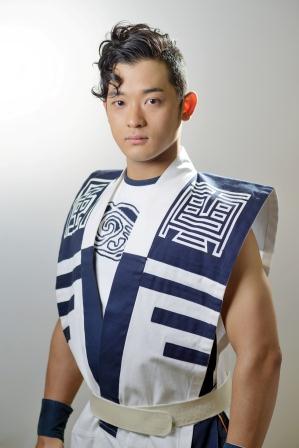 |
Tasuku Tsuji
At the age of twelve, Tasuku Tsuji was inspired by a concert by Eitetsu Hayashi, and aspired to become a taiko drummer. Tsuji is in search of new ways of performing taiko by learning from other genres of the performing arts, such as sword dance, modern ballet, and drums. Upon graduation from university in 2010, he became the youngest member of the Eitetsu Fu-un no kai. In recent years, Tsuji has participated in sessions with free jazz, ballroom dance, Japanese traditional dance, as well as presented solo performances, based on his artistic concepts of “the embodiment of music” and “expression as stage performance.”
|
|



